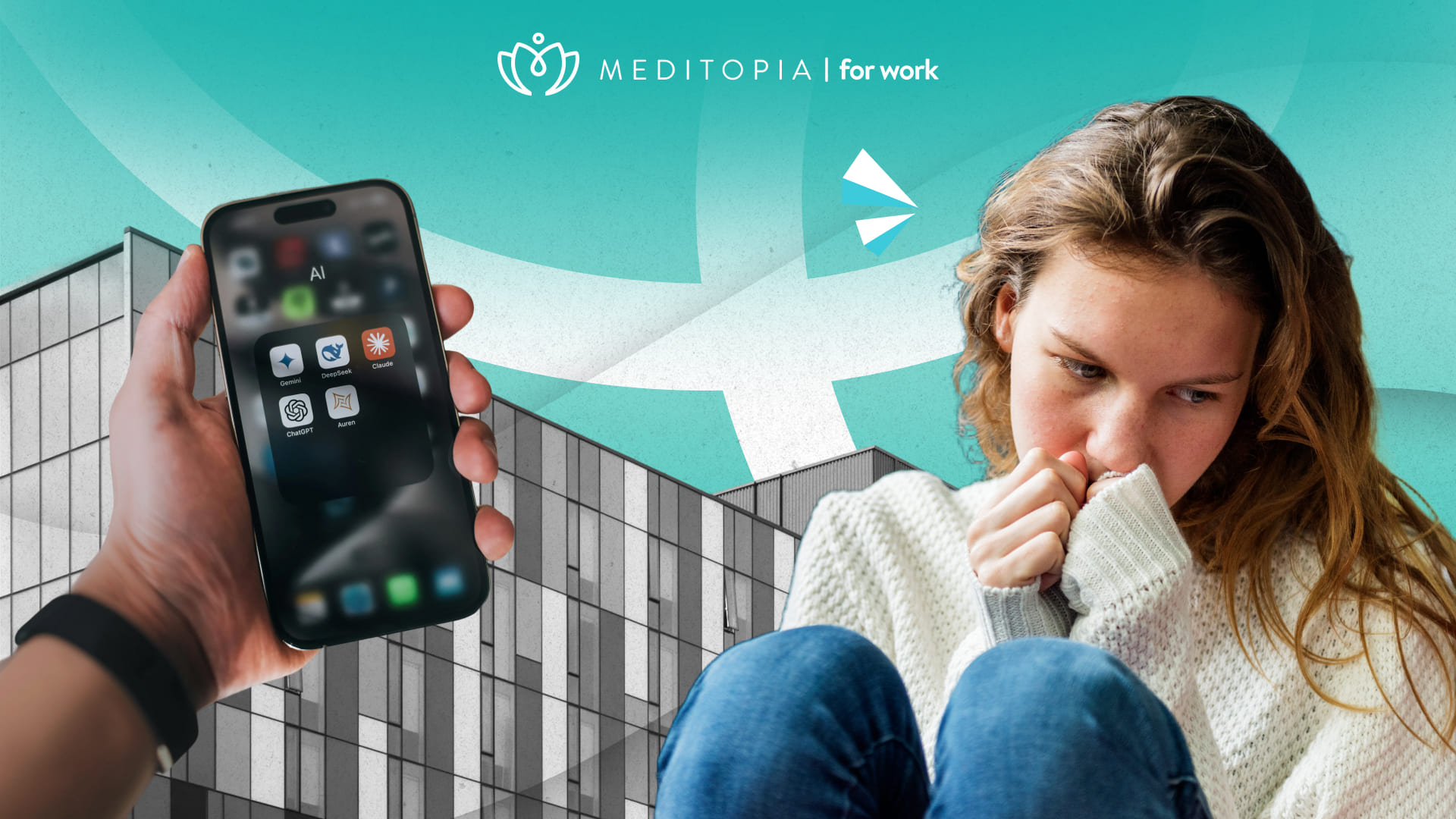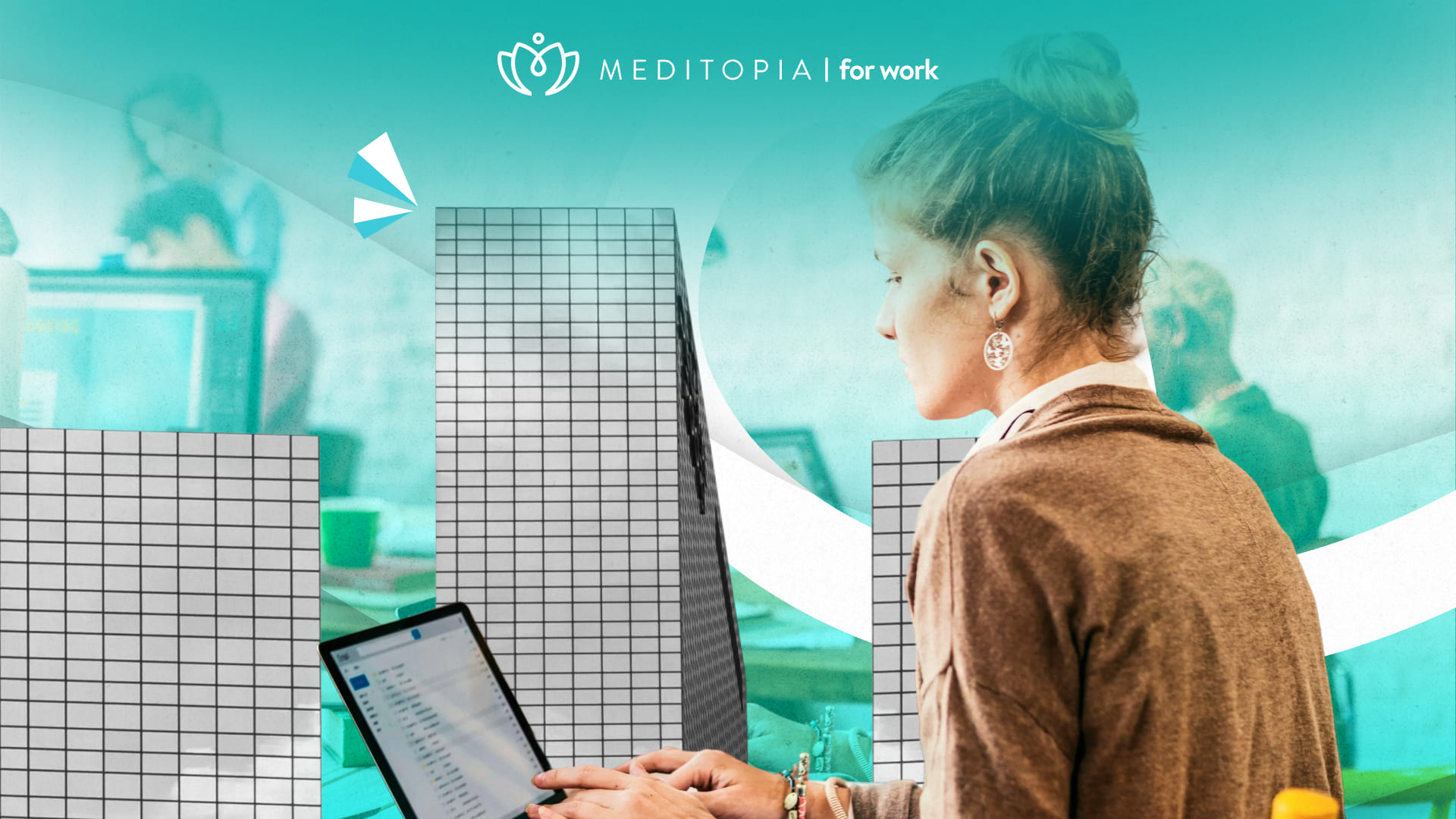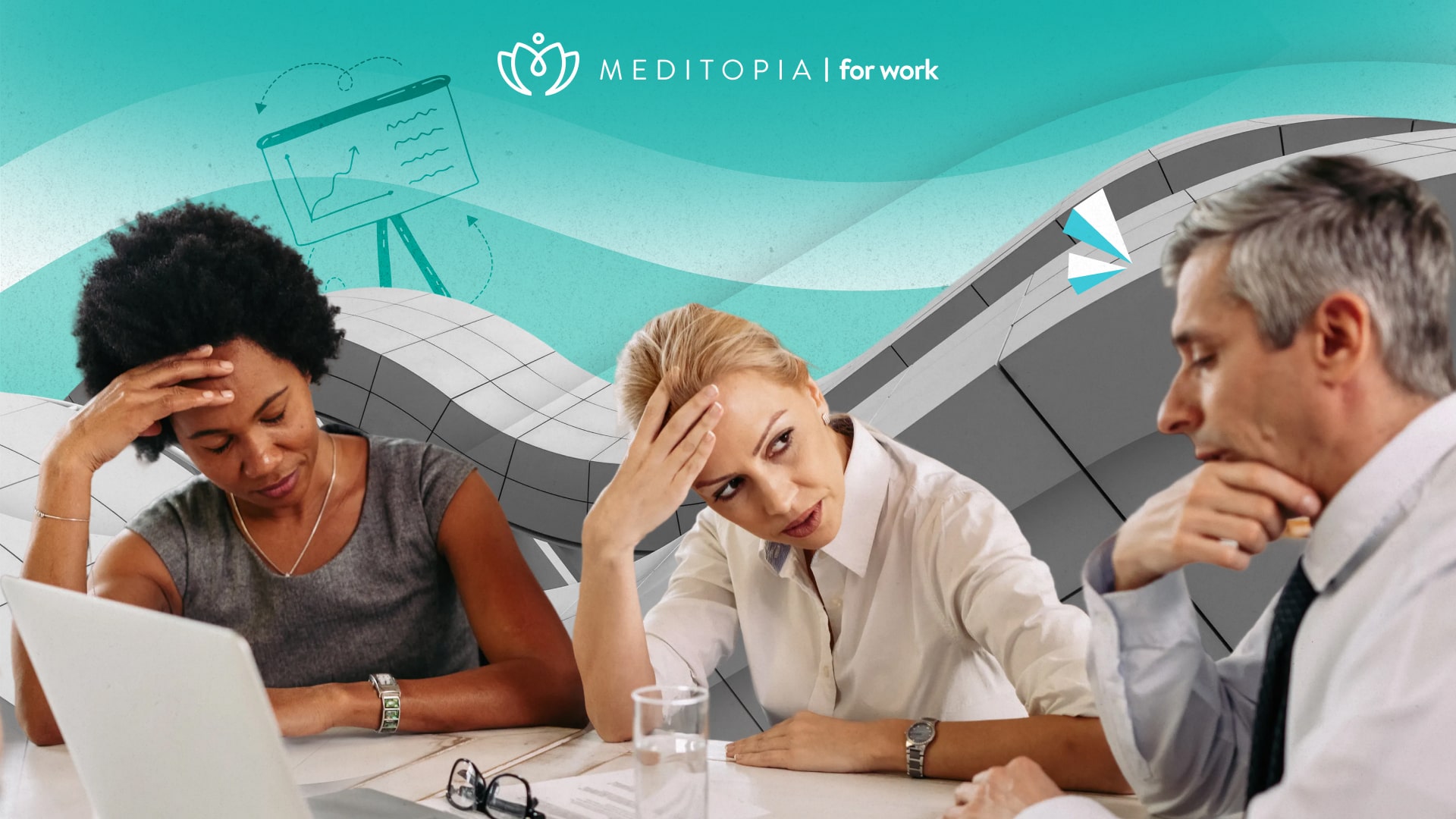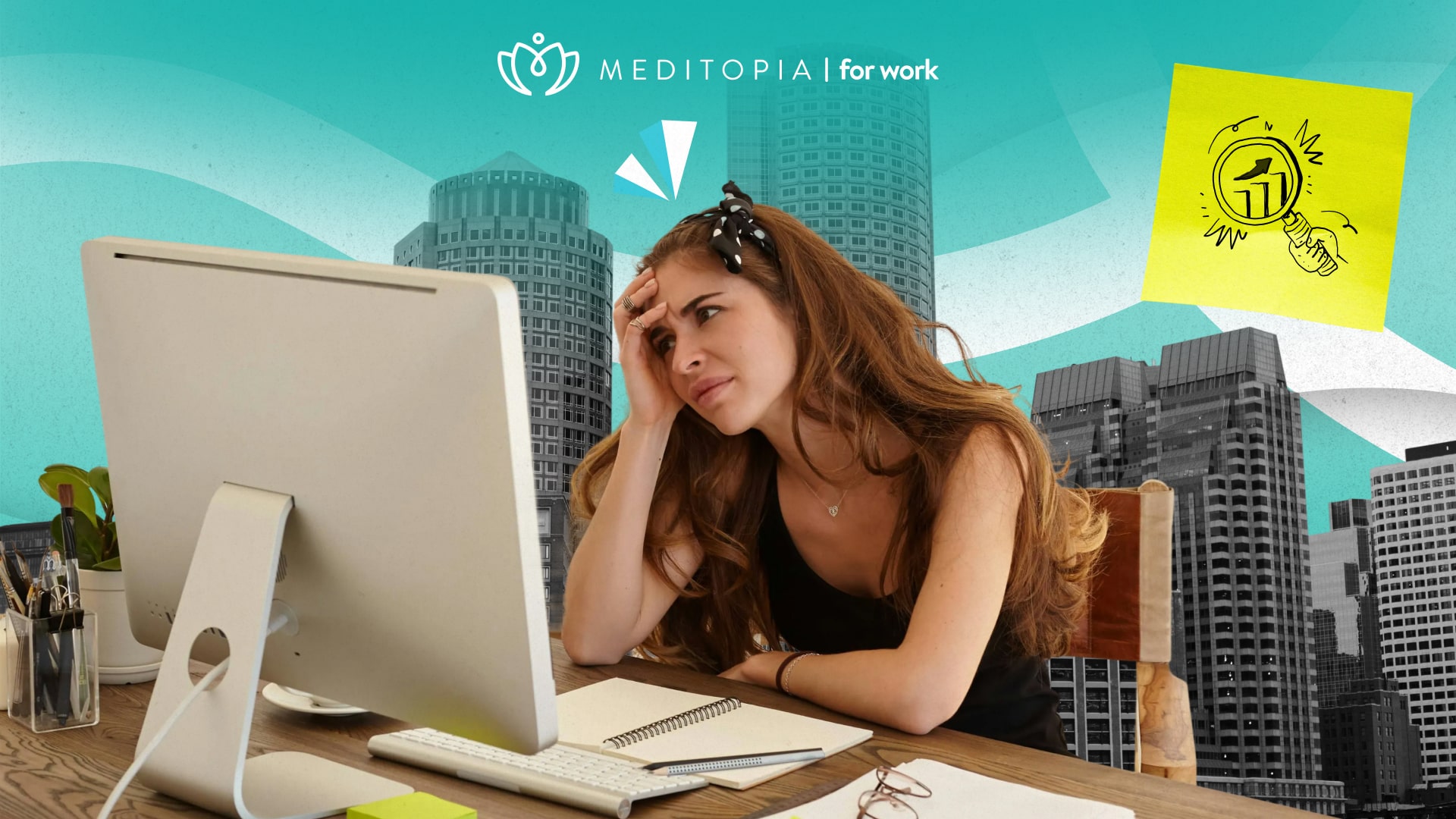Employees don’t often talk about their mental health. It’s a matter of stigma, of course, but the challenge can be addressed with a fun and useful solution: mental health day activities.
Such initiatives not only promote understanding and empathy but also provide practical strategies for managing stress, building resilience, and enhancing well-being. Let’s discover how mental health days at work serve as vital tools in fostering a supportive workplace culture.
Engaging Mental Health Activities for Employees
Humans have been known to learn through games and stories since the first eras. However, the benefits of playing are usually dismissed when we reach our adulthood. When our goal is promoting mental health in the workplace, we can use some wellness games and activities to overcome the stigma and enhance your team’s emotional well-being.
In your quest to discover how can employers reduce stress in the workplace, let’s discover 37 mental health activities for the workplace.
Popular Team-Building Activities for Mental Health
1) Breakfast Organization
What is it?
One of the most common mental health day activities. It allows you to break the ice through team building. It’s a way to start or end the week on a good tone, reduce stress, and make employees feel appreciated.
Impact on promoting mental health awareness:
When you introduce workshops and webinars about mental health topics, you can educate and break the stigma around many situations and challenges employees go through. And get guidance from professionals that leads to learning coping strategies, stress relief techniques, mental resilience, communication skills and more.
Instructions:
- Select a day of the week
- Choose a theme (could be food from the world, childhood memories, favorite snacks, salty or sweet treats, etc.)
- Make a list of foods, beverages, and snacks for people to bring (keep it simple, and try to provide some from the companies budget)
- If you choose a theme, ask people to specify in a short note or post it what the dish is, why is it meaningful to them, or its origin (it’s a way to engage more with the activity)
- Gather in a room to share 45 minutes having breakfast together
- Ask for volunteers to clean the room (make sure to rotate them every time)
2) Mental Health Workshops
What is it?
This is one of the most highly effective mental wellness activities for employees. When you introduce workshops and webinars about mental health topics, you can educate and break the stigma around many situations and challenges employees go through. And get guidance from professionals that leads to learning coping strategies, stress relief techniques, mental resilience, communication skills and more.
Impact on promoting mental health awareness:
When you introduce workshops and webinars about mental health topics, you can educate and break the stigma around many situations and challenges employees go through. And get guidance from professionals that leads to learning coping strategies, stress relief techniques, mental resilience, communication skills and more.
Instructions:
- Make a poll and ask your team which mental health topics they are interested in
- Add your own ideas to the list according to your evaluation of the team’s needs
- Select one topic each month and contact with mental health experts to provide a workshop on the topic, including reflective activities at the end
- Share a PDF with the key takeaways (if possible, don’t just send it through email, print it and share it with team leaders to make them visible at work)
You can learn more about how to reduce burnout in the workplace in our specialized blog.

3) Group Meditation
What is it?
Group meditations are not only an effective activity, but a simple and cost-friendly way of promoting mental health in the workplace. When we meditate in a group, we enhance our sense of community, strengthen our resilience, and develop inner peace to overcome work and life challenges with more awareness.
Impact on promoting mental health awareness:
When we meditate in a group, we enhance our sense of workplace community, strengthen our resilience, and develop inner peace to overcome work and life challenges with more awareness.
Instructions:
- Choose a guided Meditation about a specific topic that your team could benefit from (could be stress management, motivation, self-confidence, etc.)
- You could ask your team which topic they’d like to meditate about as well
- Announce the session by email a week earlier and specify the topic (do not make the session mandatory)
- Reserve a room at the office for this activity in particular, make sure it’s a quiet room and free of interruptions
- Try to participate in the session as well, it’s a way to make your team feel closer and engaged
- If someone in the group feels inspired to lead the next meditation, trust them with the task!
For more mindful suggestions, please check our blog about wellness giveaways for employees.

4) Pet Therapy Day
What is it?
Organize a day where employees can bring their pets to work or schedule therapy animal visits to the office. For remote teams, consider sharing pet photos or hosting virtual pet meetups.
Impact on promoting mental health awareness:
Interacting with animals [1] can lower cortisol levels and reduce stress, which supports resilience building and promotes relaxation.
Instructions:
- Partner with local therapy animal organizations or create clear guidelines for bringing pets to work to ensure a safe and comfortable environment
- Please consider employee allergies or opinions regarding certain types of animals near them
5) Collaborative Mural Creation
What is it?
Employees contribute drawings or messages to a mural representing mental health and teamwork.
Impact on promoting mental health awareness:
Fosters creativity and community engagement while reducing stress.
Instructions:
- Set up a physical or virtual mural platform where employees can collaborate freely
- Offer paintings, pencils, scissors, or any other material useful for this task
- Encourage them to express their emotions through art without any sort of perfect outcome expectations
- Reflect on the experience at the end, include refreshments if possible
Low-Budget Activities
6) Mental Health Pub Quiz
Here you have another mental health game suitable for both, on site and remote work environments. Quizzes allow people to learn while also having fun. One of its most important benefits is breaking the stigma around some mental health topics, while also allowing people to name correctly what their struggles are.
What is it?
This is a particularly important aspect, since we live in a society that labels and undermines many important concepts like attachment styles and mental health conditions.
Impact on promoting mental health awareness:
One of its most important benefits is breaking the stigma around some mental health topics, while also allowing people to name correctly what their struggles are. This is a particularly important aspect, since we live in a society that labels and undermines many important concepts like attachment styles and mental health conditions.
Instructions:
- Choose a mental health topic you want your team to learn about (could be the concept of resilience at work, depression, stress and anxiety, etc.)
- To organize the questions, you can use tools like Kahoot for online dynamics, or use boards and post-its on site
- The questions must be simple, and provide 3 or 4 answer alternatives. For example: The main difference between stress and anxiety at work is: A) The sustained feeling B) There’s no difference C) The role of the person
- This activity demands a bit of time and research on your side, but you can always get help from AI tools like ChatGPT to speed it up
- It does not matter how many answers any team guess correctly, the goal of the task is to make them think about their mental health and teach them new concepts, stats, and approaches
7) Mental Health Wall

What is it?
Do you remember a few lines before we told you to share the mental health workshop learning somewhere visible? Well, a mental health wall is ideal for it. This is literally a space in the office where you can share tips and techniques to support employee wellness, but also share upcoming activities, commemorate mental health days, and pictures of your mental health games and activities (like group meditations, breakfasts, and so on to encourage others to join).
Impact on promoting mental health awareness:
Since it’s a visual asset, it’s a way for everyone to be informed about the upcoming and past mental health activities in the organization. It also allows people to educate themselves by reading it, and it encourages teams to join upcoming activities.
Instructions:
- Request a space in the office for this wall to be at
- Decorate it! You can ask volunteers to design the boards and general images or illustrations (this is also beneficial to make employees feel part of the group and strengthen relationships)
- Find a mental health calendar so you are aware of the important dates (like Mental Health Month, Anxiety Awareness Day, and so on)
- According to the calendar, post valuable information like tips or techniques to cope with a challenging emotion or task
- You can dedicate a space of the wall to sharing inspiring messages from employees to employees too!
8) Volunteering
What is it?
Volunteering is a way to make people feel part of the community, while also allowing them the chance to provide a greater good to someone else. Your volunteering activities could be at work, a pet shelter, a children’s hospital, or any community you know needs an extra hand.
Impact on promoting mental health awareness:
Participating in workplace volunteering activities fosters a sense of community and purpose, providing employees with opportunities for social connection and fulfillment. It also helps to develop a sense of gratitude and empathy.
Instructions:
- Remember to be mindful of everyone’s time, be flexible with this
- Select a community or task at work that needs volunteers, contact the responsible persons in that area to organize a visit
- Once you get the permission, communicate through email and a short meeting at work what the volunteering is about
- Explain the benefits of volunteering in this particular community/task
- Try to avoid volunteering activities on Fridays, since it’s the day people look forward the most to enjoy their free time
- Describe in depth what roles, items, and timing you need to make this possible
- Share the results through pictures and an email! It will encourage others to join the next volunteering activity
9) Creative Expression Sessions

What is it?
Art is a very powerful tool for mental health. It allows people to get in touch with their emotions while also having fun and expressing oneself without the need for words. Which is something many people find convenient.
Impact on promoting mental health awareness:
Creative expressions sessions go from theatrical acting, singing, dancing, painting, poetry contests, and even photography. Among other benefits for work we find: stress relief, increased cognitive functions, development of a sense of identity and purpose, team building, and innovation.
Instructions:
- Choose a creative way for your team to express themselves (you can choose one from the previous list)
- Select a room for the activity and provide the necessary materials. For example: if you choose photography, select a topic (could be work environment, their commute to work, or work environment), provide a date for people to send their best photos according to the topic, print them and exhibit them in the selected room
- Allow people a chance to name their pictures and to express what it made them feel
- If you wish, you could grant a prize for the ebay photography, and allow them to vote for the one they liked the most
- You could paste the pictures (or any other creative expression) in your mental health wall
10) Breathing Exercises
What is it?
This is a one of the most low budget and easy stress awareness activities at work. Teach simple breathing techniques to help employees manage stress and regain focus.
Impact on promoting mental health awareness:
Improves concentration and emotional regulation [2], contributing to work-life balance and stress reduction.
Instructions:
- Provide instructional guides for breathing exercises
- Host brief group sessions, or share videos on techniques like deep breathing and box breathing
- Find many different breathing exercises at Meditopia's app to make this idea easier to execute
11) Nature Exposure
What is it?
Encourage spending time outdoors during breaks or organize activities like group walks in a park.
Impact on promoting mental health awareness:
Being in nature reduces stress, boosts mood, and enhances focus, supporting resilience building.
Instructions:
- Create designated outdoor spaces for breaks or organize nature-based activities to promote regular exposure
- Share a small meal together and reflect on the experience
Virtual Activities
12) Digital Detox Challenges
What is it?
Digital Detox Challenges are initiatives aimed at encouraging employees to temporarily disconnect from digital devices and online activities, fostering mindfulness, reducing stress, and promoting mental well-being by providing opportunities for relaxation, interpersonal connection, and engagement in offline activities.
Impact on promoting mental health awareness:
Fostering mindfulness, reducing stress, and promoting mental well-being by providing opportunities for relaxation, interpersonal connection, and engagement in offline activities.
Instructions:
- To keep things simple, you could organize different activities from a remote environment (some examples are: no Slack messages on certain hours, no phone breaks, breathing challenges during the day, stretching at the start of the day, etc.)
- Specify what the challenge of the week is through an email
- Regarding physical activities and breathing challenges, you could schedule a 15 minute break to join a virtual meeting and do it together
- Close the session explaining the benefit of such activities regarding their mental well-being
13) Meet the Leader/Coworker:
What is it?
If you’re looking for virtual mental health activities, this is the one for your team. Whether you decide to have it online or on site, meet the leader or coworker is a 40 minute mental health activity that allows your team to know more about everyone’s role at work and personal life.
Impact on promoting mental health awareness:
Instructions:
- This a group session to interview you, another HR professional, or a team member
- It can be on-site or online if you have remote work policies
- You can use webs like onlinequestions.org for the team to ask things anonymously before or during the meeting
- To break the ice, start with a couple of simple questions like where are they from, what’s their favorite food, or a childhood anecdote
- Some of the questions must be about the interviewer's role at work so people can get to know more about it
- After 30-40 minutes close the session, and choose a volunteer for the next session (could be once a month)
14) Peer Support Groups
What is it?
Peer support groups at work provide employees with a supportive environment to share experiences, coping strategies, and resources for managing mental health challenges, fostering social connection, reducing stigma, and empowering individuals to take an active role in their well-being.
Impact on promoting mental health awareness:
Participating in peer support groups facilitates open dialogue, mutual understanding, and shared experiences, creating a supportive environment that fosters mental health awareness among employees.
Instructions:
- Identify groups that could benefit from their peers, some examples are: new talent, pregnant women, new parents, sportive teams, etc.
- Create the support group by informing everyone through emails and meetings
- Participation should not be mandatory.
- Select a leader to carry on with the communications and organization of upcoming events (this person will also serve as a link between you and the employees’ needs)
- Organize a meeting every month so they can discuss their challenges and find solutions together (a topic, for example, for pregnant women could be: how to overcome the inadequacy feelings during pregnancy, or how to manage stress)
- The sessions must have a particular timing and agenda, meaning, each session must have a clear schedule and topics to follow
15) Virtual Book Club
What is it?
Virtual book clubs at work are online gatherings where employees read and discuss books together, offering a structured yet informal platform for social interaction, intellectual engagement, and stress reduction, ultimately benefiting mental health by fostering a sense of community, stimulating cognitive function, and providing a healthy outlet for relaxation and self-reflection.
Impact on promoting mental health awareness:
Virtual book clubs are ideal to develop a positive mental health by fostering a sense of community, stimulating cognitive function, and providing a healthy outlet for relaxation and self-reflection.
Instructions:
- Choose a theme or genre (e.g., fiction, non-fiction, self-help) to guide book selection
- Determine how often the book club will meet (e.g., monthly, bi-weekly) to discuss the chosen book
- Agree on a convenient time and date for book club meetings that accommodates participants' schedules
- Have members suggest book options or take turns selecting books for each meeting, ensuring variety and inclusivity in choices
- Set up a platform (e.g., email, messaging app, online forum) for members to communicate, share thoughts, and coordinate meetings
- Assign specific reading deadlines for each book
- Prepare discussion questions or prompts related to the book's themes, characters, and plot to guide conversation during meetings
- Gather feedback from members after each meeting to evaluate what worked well and what could be improved for future meetings.
16) Guided Virtual Meditation
What is it?
Offer weekly guided meditation sessions online to help employees relax and refocus.
Impact on promoting mental health awareness:
Reduces stress and anxiety while fostering mindfulness and employee well-being.
Instructions:
- Partner with a meditation coach to host live sessions on Zoom or similar platforms
- You can use Meditopia's meditations for work, too!
- Provide recordings for later use
17) Digital Wellness Toolkit
What is it?
Provide employees with access to curated mental health resources like apps, podcasts, and worksheets.
Impact on promoting mental health awareness:
Empowers employees to manage stress and improve resilience on their own time.
Instructions:
- Share a centralized resource list or create a webpage with categorized tools
- Meditopia for Work offers a centralized Employee Dashbord with materials like this! All you have to do is check the library, choose a topic, and send your team all the guides and resources we have about it
World Mental Health Day Activities
18) Mental Health Trivia Challenge
What is it?
A fun and educational trivia game where employees answer questions related to mental health, stress management, and well-being. This is one of the most engaging World Mental Health Day activity ideas as it helps break the stigma around mental health through knowledge-sharing.
Impact on promoting mental health awareness:
This activity helps employees learn about mental health in an interactive way while also fostering teamwork. It can be a great icebreaker that encourages open discussions about well-being.
Instructions:
- Prepare a set of multiple-choice or true/false questions related to mental health.
- Divide employees into small teams or allow individual participation.
- Assign a facilitator to read the questions aloud.
- Use a point system to reward correct answers and recognize the top performers at the end.
19) Walk & Talk Sessions
What is it?
A guided walk where employees can discuss mental health topics or simply engage in light conversations in a relaxed setting.
Impact on promoting mental health awareness:
Walking meetings and social connections reduce stress and increase creativity, making this a great way to improve workplace relationships while promoting mental well-being. Also, physical movement helps to reduce tension, back pain, and sedentarism.
Instructions:
- Organize small walking groups during lunch breaks or schedule optional walking meetings.
- Encourage employees to engage in meaningful conversations or simply enjoy the fresh air.
- Optionally, provide a list of mental health topics for reflection or discussion.
20) Positivity Chain
What is it?
A collaborative World Mental Health Day reflection activity where employees write positive affirmations or supportive messages on paper strips and link them together to create a "positivity chain."
Impact on promoting mental health awareness:
This activity reinforces inclusivity and team morale, creating a culture of encouragement while visually representing collective support within the workplace.
Instructions:
- Provide colorful paper strips and markers.
- Ask employees to write something positive, such as a self-affirmation or a note of encouragement for colleagues.
- Link the strips together to form a long chain and display it in a common area.
- At the end of the day, select a few messages to read aloud.
21) Silent Support System
What is it?
A non-verbal way for employees to express their current mental state by using colored stickers, badges, or desk signs.
Impact on promoting mental health awareness:
This activity promotes self-awareness, empathy, and inclusivity by allowing employees to indicate their mood without verbal communication, helping colleagues recognize when support may be needed. This approach can be particularly valued by employees who struggle with recognizing emotions, asking for help due to stigma, and those with an autism diagnosis.
Instructions:
- Assign different colors to different moods (e.g., green = feeling good, yellow = neutral, red = needs support).
- Encourage employees to place the appropriate sticker or sign on their desk or name badge at the start of the day.
- Allow employees to check in with those who might need a friendly conversation or extra support.
- Organize a short talk or mindful session with a mental health expert to help them identify, manage, and overcome certain challenging emotions
Mental Health Games
22) Mindfulness Bingo

What is it?
Create a bingo card with mindfulness activities done during the week, like “took a deep breath,” “drank water,” or “listened to a calming song.”
Impact on promoting mental health awareness:
Encourages daily mindfulness habits and emotional health.
Instructions:
- You can ask volunteers to help you create the bingo carts or design a simple board on Canva
- Print them and distribute them through your team, along with small colorful stickers they can mark the bindo boxes with
- Offer small rewards for completed cards at the end of the week
- During the game you can enjoy healthy snacks and fresh beverages
23) Stress Ball Crafting
What is it?
A hands-on activity where employees create their own stress balls using simple materials like balloons and fillers such as rice or flour.
Impact on promoting mental health awareness:
Combines creativity with practicality, offering employees a useful tool for managing daily stress, promoting work-life balance.
Instructions:
- Gather the employees and materials in an empty room
- Explain the goal of the activity
- Encourage personalization by allowing participants to decorate their stress balls
- Explain in the end that stress balls provide a physical outlet for stress, tension, and nervous energy, and encourage their periodical use [3]
24) Positive Affirmation Jar

What is it?
Create a jar filled with positive affirmations that employees can draw from for motivation and encouragement.
Impact on promoting mental health awareness:
Provides a quick morale boost and reinforces a positive mindset, enhancing emotional health.
Instructions:
- In a visible place of the office, put an empty cristal jar, small pieces of paper, and a pen
- Encourage employees to write their own affirmations and put them in the jar weekly
- Then add some more written by yourself
- At the beginning or end of the week, encourage them to pick an affirmation to support their mindset
25) Mindful Walking Breaks
What is it?
Encourage employees to take short, mindful walks during breaks, focusing on their surroundings and breathing.
Impact on promoting mental health awareness:
Walking outdoors or in a quiet space promotes relaxation and mindfulness, boosting resilience building and improving overall emotional health.
Instructions:
- Schedule optional 10-15 minute group walks or encourage employees to take personal walking breaks
- Provide guidance on practicing mindfulness during walks
- You can improve the effectiveness of this mental health activity by using Meditopia's outdoor meditations through Meditopia for Work
26) Gratitude Board

What is it?
A communal space where employees can post notes expressing gratitude for colleagues, events, or aspects of their work life. This could be a physical board in the office or a virtual one accessible to remote teams.
Impact on promoting mental health awareness:
Encourages positivity by shifting focus from challenges to things employees appreciate. Gratitude practices are known to reduce stress [4] and increase feelings of employee happiness.
Instructions:
- Provide sticky notes, a board, or a digital platform where employees can write and post their gratitude messages
- Share some examples during team meetings to reinforce the importance of recognizing positive moments
- Encourage them to check the board from time to time
27) Resilience Story Sharing
What is it?
Employees share personal stories of overcoming challenges, promoting inspiration and a sense of community.
Impact on promoting mental health awareness:
Encourages vulnerability and empathy, fostering a supportive work environment. It also helps others see that their personal struggles are also shared by others, so they can feel less isolated.
Instructions:
- Host these sessions in small groups or anonymously share stories submitted via email
- Try to count with a mental health professional to guide the discussion
- Avoid judgmental approaches to people's experiences
28) Emotion Charades
What is it?
A twist on classic charades, focusing on expressing emotions like joy, stress, or excitement.
Impact on promoting mental health awareness:
Emotions are one of the most important mental health topics to discuss at work. An activity like this enhances emotional intelligence and mental health education, while also helping employees notice throuhg body language and assertive communication how emotions can show at work.
Instructions:
- Play during team-building sessions, using emotion-themed cards for prompts
- Ask people to act like they were feeilng a specific emotion and let others guess
- Ask them why they suggest the emotions they suggest
- Once guessed, direct the conversation about how to handle emotions effectively
29) Mental Health Myth Busters
What is it?
A quiz game that dispels common mental health myths, fostering awareness and knowledge.
Impact on promoting mental health awareness:
Promotes mental health education and reduces stigma regarding these topics at work.
Instructions:
Prepare true/false questions for teams to answer and discuss.
Mental Health Event Ideas
30) Stress Management Bootcamp
What is it?
A hands-on, intensive program designed to teach employees stress-reduction techniques like breathing exercises, mindfulness practices, and time management strategies.
Impact on promoting mental health awareness:
This event provides employees with practical tools to combat workplace stress, enhancing productivity and emotional well-being. It serves as one of the most effective stress awareness activities at work by offering immediate, actionable solutions.
Instructions:
Partner with mental health professionals or wellness coaches to organize a series of workshops or breakout sessions over one or more days.
31) Work-Life Balance and Boundary Setting
What is it?
An event that educates employees on how to establish healthy boundaries between work and personal life, fostering better work-life balance and inner peace.
Impact on promoting mental health awareness:
Encourages employees to prioritize mental well-being while promoting sustainable work habits. This is especially useful as one of the key mental health awareness activities for employees.
Instructions:
Host expert-led discussions and interactive activities where employees can practice saying "no" assertively and scheduling personal time.
32) Random Acts of Kindness Day
What is it?
A day dedicated to encouraging employees to perform small acts of kindness for colleagues, such as sharing a compliment, bringing coffee, or leaving thank-you notes.
Impact on promoting mental health awareness:
Builds a positive work culture and strengthens relationships, fostering community engagement and reducing stress.
Instructions:
Provide ideas or prompts for acts of kindness and create a space for employees to share their experiences.
33) Mindfulness Mondays
What is it?
A recurring weekly event focused on mindfulness practices, such as guided meditations, journaling, or mindful breathing exercises.
Impact on promoting mental health awareness:
Establishes a regular routine for employees to reset and start the week with clarity and calm, making it one of the most effective mental health event ideas.
Instructions:
Set up a 15–30 minute mindfulness session every Monday morning, either in person or virtually, with resources for continued practice throughout the week.
Mental Health Workshop Ideas
34) Mental Health and Nutrition Workshop
What is it?
A session exploring the link between nutrition and mental health, emphasizing the importance of balanced eating habits in reducing anxiety and depression.
Impact on promoting mental health awareness:
Empowers employees with knowledge about how their diet can influence their mood and energy levels. This workshop fits perfectly among mental health workshops ideas.
Instructions:
Invite a nutritionist or dietitian to provide practical tips and meal ideas, along with handouts or access to a nutrition app.
35) Positive Psychology Workshop
What is it?
A workshop introducing employees to concepts like gratitude, optimism, and resilience, based on the principles of positive psychology.
Impact on promoting mental health awareness:
Encourages a shift in mindset that promotes long-term emotional well-being, positioning it as a vital component of mental health topics to discuss at work.
Instructions:
Organize an interactive session with activities like gratitude journaling or optimism exercises, led by a certified positive psychology coach. Meditopia for Work has mental health experts ready to offer these and other kinds of workshop, just send us a message!
36) Mental Health First Aid Training
What is it?
A training program equipping employees with skills to identify and respond to mental health crises in the workplace.
Impact on promoting mental health awareness:
Promotes a supportive and informed work environment by encouraging proactive mental health intervention, making it one of the most impactful stress awareness activities at work.
Instructions:
Partner with a mental health organization to deliver a comprehensive first aid certification program. Beforehand, you can host a short and reflective session about how employees believe a mental health crisis looks like.
37) Mindful Communication Workshop
What is it?
A workshop focusing on active listening, empathy, and effective communication techniques to improve employee relations and interactions.
Impact on promoting mental health awareness:
Reduces misunderstandings, fosters collaboration, and enhances emotional intelligence. This makes it one of the more dynamic mental health workshops ideas.
Instructions:
Include role-playing exercises and real-life scenarios to help employees practice and refine their communication skills.
How Can Mental Health Games Benefit Employees in the Workplace?
Since you’re interested in creating mental health days at work and wellness ideas for employees, here’s a list of reasons why you should pursue this idea:
- Stress Reduction: Engaging in mental health games can help employees unwind, relax, and alleviate stress, leading to improved overall well-being.
- Promotion of Team Building: Participating in games fosters teamwork, collaboration, and camaraderie among employees, strengthening relationships and enhancing the workplace culture.
- Enhanced Problem-Solving Skills: Many mental health games involve puzzles, challenges, and strategic thinking, which can improve employees' problem-solving abilities and creativity.
- Increased Productivity: Taking short breaks to play mental health games can boost productivity by providing a mental refreshment, reducing burnout, and improving focus upon returning to work tasks.
- Encouragement of Positive Coping Mechanisms: Mental health games often incorporate activities that promote healthy coping mechanisms, such as mindfulness, self-care, and emotional expression, which can be beneficial in managing workplace stressors.
- Improved Communication Skills: Games that require teamwork or communication skills can enhance employees' ability to communicate effectively, listen actively, and collaborate with colleagues.
- Boosted Morale and Motivation: Participating in fun and engaging activities uplifts employees' spirits, increases morale, and fosters a positive attitude towards work, leading to higher motivation levels.
- Development of Resilience: Overcoming challenges and setbacks in mental health games can help employees build resilience, adaptability, and perseverance, which are valuable qualities in the workplace.
- Support for Mental Health Awareness: Incorporating mental health games into the workplace environment sends a message that the organization values mental health and well-being, encouraging open discussions and reducing stigma surrounding mental health issues.
- Creation of a Positive Work Environment: By providing opportunities for enjoyment, relaxation, and personal growth, mental health games contribute to creating a positive and supportive workplace culture where employees feel valued and appreciated.
Some companies that are already investing in mental health days to support the well-being of their teams through games and activities are Microsoft [5], Pinterest [6], Unilever [7], and Palo Alto Networks [8].
To discover more about mental health swag ideas or disciplining employee with mental health issues, please check our blogs on the matter.
























